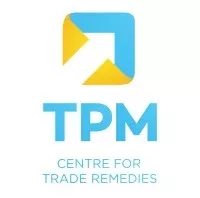Just as the world was recovering from the effects of the pandemic and the world-wide lockdowns that completely disrupted the global economy and supply chain, Russian military's aggression towards Ukraine has again upset the global economy. On 24th February 2022, Russian President Vladimir Putin ordered a military operation in eastern Ukraine, on the pretext of maintaining peace. The situation aggravated very quickly as missile strikes occurred in many cities across Ukraine, including the capital Kyiv. With the death count starting to rise, Vladimir Putin making nuclear threats to the NATO members and no conclusions drawn from the peace talks between Ukraine and Russia, it is early to estimate the effect of these events across the global economy.
Countries across the world have imposed economic and other sanctions on Russia, with focus on its finance, energy, and military-industrial sectors. The United States, Canada, the European Union, and the United Kingdom have banned certain Russian banks from SWIFT and have agreed to prevent the Russian Central Bank from deploying more than $600 billion of its international reserves to undermine the impact of the sanctions. This has resulted in the ruble being at an all-time low, with some of the major economies isolating financial institutions of Russia and banning trade relations in certain commodities and several international companies and investors pulling back from investing in Russia.
Global trade might get significantly affected because of these sanctions. Russia is the world's third largest petroleum and natural gas producer and exporter. The crude oil prices, which were already high, soared $100 per barrel in the last one week. British Petroleum has decided to exit from oil giant Rosneft, followed by Shell which is planning to exit from Russia to join the campaign to isolate the country. It is likely that the United States and some OPEC countries will most likely increase the supply and will ask other countries to stop importing energy from Russia and threaten them with sanctions if they fail to do so, especially China which is the largest importer of oil from Russia. Furthermore, Ukraine is one of the major exporter of agricultural products, which will cause a supply chain disruption and increase in food prices. The price of gold is also expected to rise, and consequently there will be a hike in the commodity prices, leading to inflation across the globe.
Although Russia is a key supplier of fuel and gas, it is not a major player in the world economy. According to experts, “Russia is incredibly unimportant in the global economy except for oil and gas”. The burden of the war will most likely fall on only the most vulnerable countries who depend heavily on these nations for their supply. For example, Turkey which imports majority of its wheat from Ukraine and Russia and is already in the middle of a financial crisis with an inflation at nearly 50%, and Egypt that imports nearly 70% of its wheat is likely to suffer the consequences of the war. The European Union gets 40% of its natural gas and 25% of its oil from Russia and thus is likely to face a spike in the prices of these essential resources in the near future. Despite these facts, many experts feel that while the war will have adverse effects in the short run, it will not create any long-term damage for most economies.
India is likely to witness a rise in the inflation due to the rise in the already high prices of fuel and food products. “Every 10% rise in the crude oil prices will shave off around 0.2 percentage point (pp) from the GDP growth and widen the current account by 0.3 per cent”, according to the study conducted by Normura Holdings. The rise in demand for gold and the high import prices of fuel will deteriorate the Balance of Payment, weakening the Indian Rupee and thereby worsening the inflation.
India receives only 0.15% of its natural gas and less than 6% of petroleum and oil from Russia. This is because the Indian refineries cannot process the heavy crudes that Russia exports and the transportation cost of importing from Russia is higher for India. Major exports to Russia include pharmaceuticals, chemicals, machinery and electronics, coffee, tea and spices. Major imports from Russia are of petroleum products, diamonds, minerals and fertilizers., which can be procured from alternative sources. Gas Authority of India Limited (GAIL) has recently signed an agreement with Gazprom for import of nearly 25 lakh tons of LNG annually for a period of 20 years. So far, the sanctions imposed by the United States and other countries do not include ban on fuel and gas imports.
Thus, although the surge in the oil prices and disruption in the supply chain will pose certain risks, on the bilateral front, India will not suffer any major or long-term effects from the war. In fact, India could gain in terms of its exports to the European Union (“EU”), as EU is one of the major importing partners of Russia. With possibility of limited trade or trade cut off from Russia, EU shall be dependent on other countries including India to fulfil its import requirements. Therefore, the supply chain disruptions in the EU can open export avenues for India, especially for metal products including Steel and Aluminium. The following are some of the products where Russia is a major supplier where now India can act as an alternative supplier:
- Iron and Steel
- Wheat
- Medium and Light Oils
- Aluminium
- Turbojets
- Copper & Copper Alloys
- Gold and Diamond
- Fertilisers
The Federation of Indian Export Organisation (FIEO) has currently asked the exporters to hold off all their consignments that are shipped through the Black Sea. This could have a consequential effect on the plastic sector of India which exports 85% of its products to Commonwealth of Independent States (CIS) and use the Black Sea trade route for their consignments. Changing route will increase the freight cost and delivery time, making their exports uncompetitive. The Federation of Indian Micro and Small & Medium Enterprise (FISME) is also worried about the impact of the war on the MSME sector that is still recovering from the pandemic. As the energy costs increase, the cost of production would also go up, causing further distress to this sector. On immediate and short-term basis, many experts believe that after having survived the effects of the pandemic that lasted nearly two years, the world economy will also survive and outgrow the effects of the war. Currently as the world economies focus on isolating Russia, this war could potentially have positive outcomes for India's bilateral trade and may create new opportunities for Indian producers to act as an alternative suppliers for many goods. The Directorate General of Foreign Trade (DGFT) has set up a helpdesk to support and seek suitable resolutions for international trade issues related to Russia and Ukraine. As government closely monitors the situation, it will also have to make quick decisions to ensure efficient supply chain and control the spike in the oil prices and the resultant inflation. However, long term effect and the outcome will highly depend on the duration of the war and can only be determined once Russia and Ukraine reach a conclusion.
Originally published 2 March, 2022
The content of this article is intended to provide a general guide to the subject matter. Specialist advice should be sought about your specific circumstances.


